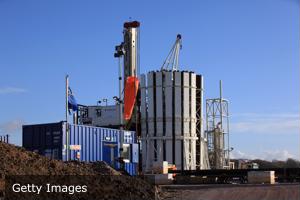Engineerblogger
March 8, 2012
Breakthroughs in engineering research and development have helped launch the U.S. on the path toward elusive energy independence, NPR reports.
With gas prices continuing to spike throughout the U.S, Americans have increasingly called on the Obama Administration to support policies that would bolster the nation's fuel production. While President Obama has publicly championed an "all of the above" energy strategy – one that promotes domestic drilling, improves fuel efficiency and develops alternative energy technologies – energy experts contend the U.S. has made significant strides over the past decade in reducing its reliance on foreign countries for oil, natural gas and other fossil fuels.
"Energy self-sufficiency is now in sight," energy economist Phil Verleger told the news provider.
Verleger and other experts assert that engineering tools and breakthroughs in industrial engineering research have helped augment oil and gas supplies in the U.S. He and other scientists contend that hydraulic fracturing – more commonly known as fracking – and other advanced drilling techniques have allowed the U.S. to tap into previously unattainable natural gas and oil reserves throughout the U.S.
Though fracking remains exceedingly controversial, such drilling wells have fueled U.S. natural gas production over the past few years, as companies have increasingly exploited resources in states such as Pennsylvania, West Virginia, North Dakota and Texas. Verleger said that the uptick in the nation's energy supplies results from the success of private research and development.
"This is really the classic success of American entrepreneurs," Verleger noted. "These were people who saw this coming, managed to assemble the capital and go ahead."
While the U.S. has historically relied upon other countries for the majority of its energy needs, it could become the world's largest producer of natural gas and oil by the end of the decade, according to PFC Energy chief executive Robin West.
"This shale gale, I describe it as the energy equivalent of the Berlin Wall coming down. This is a big deal," West said, referring to the widespread use of fracking and advanced drilling techniques. "We estimate that by 2020, the U.S. overall will be the largest hydrocarbon producer in the world; bigger than Russia or Saudi Arabia."
Though many experts caution against estimating when the U.S. will achieve the nebulous goal of energy independence, experts such as West and Verleger contend the uptick in domestic hydrocarbon production will ultimately increase energy security. If the U.S. continues on its current energy course, it would enable the country to reduce its reliance on unstable oil and natural gas producers in the Middle East, experts say.
Source: Knovel

0 comments:
Post a Comment